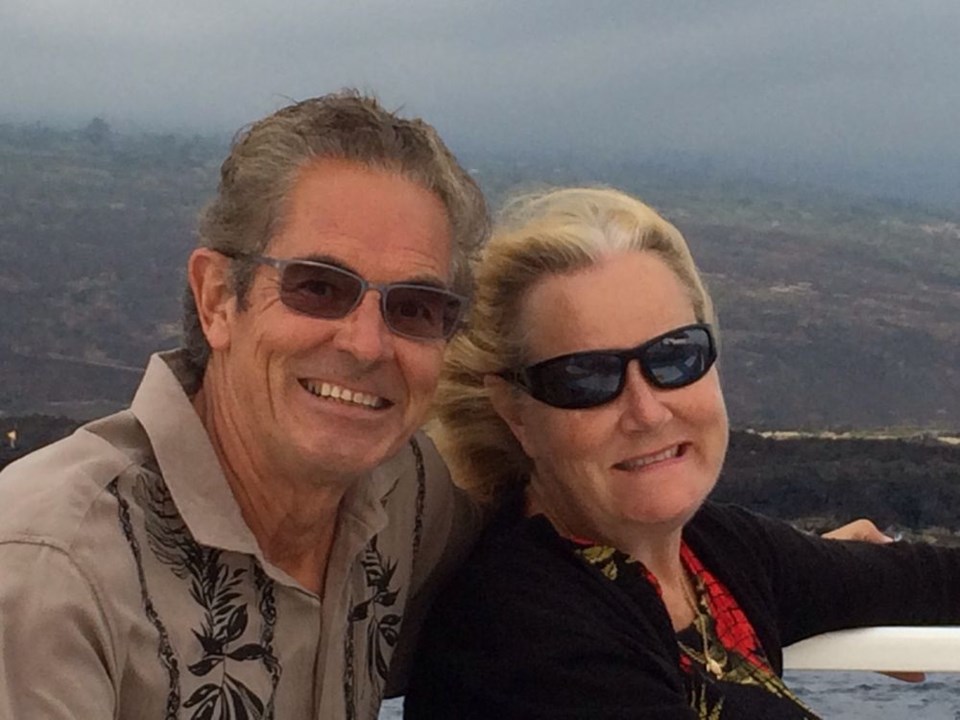Lorie Regehr, Canora Dairy Bar owner, and her husband Murray Bolton, experienced what many people would consider to be a whole new level of fear and uncertainty while in Hawaii during the missile threat on January 13.
Regehr said the day started out as a fairly typical Saturday in Hawaii, but that quickly changed.
“I was out on the lanai (the Hawaiian word for a deck or porch), connecting with friends via email when I heard an alarm go off on our IPhone attached to Wi-Fi. We heard it but didn't even bother to look at it, assuming it to be a high surf advisory or some other weather related alert.
About five minutes later my husband picked up the phone and when he'd read it, he held out the message for me to read, ‘Ballistic missile threat inbound to Hawaii, seek immediate shelter. This is not a drill.’”
Regehr said they looked at each other in disbelief, and their minds were racing with many different unsettling thoughts and questions.
“Is it real? Why are we not hearing the alarm out on the street that's activated monthly as a drill in the event of a tsunami?”
She said she briefly thought that they should have revamped their wills before leaving Canada, but then realized it may not matter a whole lot if a nuclear war broke out.
Regehr remembered hearing a news story before leaving Canada in late November that Hawaii was launching drills to alert citizens to the possibility of a nuclear missile attack.
“What I took away from that story was that a missile would take 20 minutes to arrive; that if North Korea had any degree of accuracy it would target a large city like Honolulu and that short of being in a bunker, the best you could do is stay away from windows. Buildings here don't have basements, so there really isn't any place to go.
“I started praying but realized the only words I had were gratitude because I know there is eternity to be in God's presence. Our thoughts went to family members and loved ones, wanting them to know we care desperately for them, but trusting they know that even if we were to die, we are in a good place with our Creator. Then I thought about friends who aren't right with Jesus and my heart went out to them.”
Regehr said her husband hugged her and told her, “I love you.” Due to the uncertainty of their situation at the time, he composed a short FaceTime message for their family members who have iPhones, “We just received this alert. (missile threat) We have no idea how severe the threat is. We love you all.”
Regehr said this turned out to be a very helpful move.
“That message got the immediate attention of our daughter in San Francisco who, as a geophysicist earthquake seismologist put together the emergency preparedness plan for the province of British Columbia some years ago. Within minutes she was on FaceTime with us, accessing insider networks that said the missile scare wasn’t true.”
Regehr said they took some comfort from that exchange, but they spent another half hour in limbo before they got official confirmation on their phone that it was a false alarm, which, of course, was a huge relief.
Along with feeling relieved, she said her mind continually tried to analyze how this kind of a situation could have happened.
“When we saw news that night that it had been an employee error, I wondered how a message like that could have been sent by an employee going off shift, without also having a retraction ready in the system to refute it. You take a message like that at face value and assume it has been issued by the federal government. Learning later it had bypassed federal authorization as well as the military was troubling.”
Regehr has been spending winters in Hawaii for the last decade as a volunteer. She teaches English as a second language to students from all over the world who go to the University of the Nations in Kona on the Big Island. She said it's very rewarding to have the opportunity to interact yearly with so many committed students and staff.
“It is an international Christian university run by Youth with a Mission; one of the largest missionary training organization in the world, with staff and campuses operating in every nation. This winter, I'm doing some tutoring as well as assisting with inventory and shopping to keep the coffee shop on campus running.”
Regehr said her husband does volunteer work in Hawaii with an organization called YWAM Ships.
“It provides logistical support for vessels that bring medical services, Bibles and supplies to remote locations in outposts such as Panama, Micronesia, and Papua New Guinea, islands without air strips where the people can only be reached by boat.”
Regehr said later on she found herself thinking about the Canora Dairy Bar, and as owner of the building, what would happen if the missile attack was real and she was unable to return to Canora.
“I realized what a huge undertaking it would be for someone else to try to mobilize the Dairy Bar for another season. The churches in Canora would keep the thrift shop and food bank active in the building, but it would be too overwhelming for staff or friends to open and run the ice cream shop.”
Even though the missile threat was a very unsettling situation, she said she and her husband are still grateful to be able to do volunteer work in Hawaii.
Regehr is optimistic that the incident can have a positive long-term effect around the world.
“My hope is that this false alarm has underscored the need for world leaders to find peaceful solutions. No one wins if there is a nuclear attack.”

.png;w=120;h=80;mode=crop)


